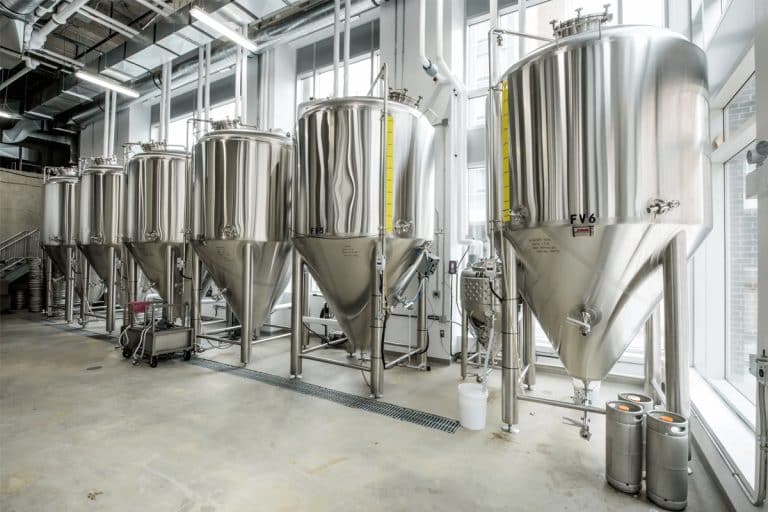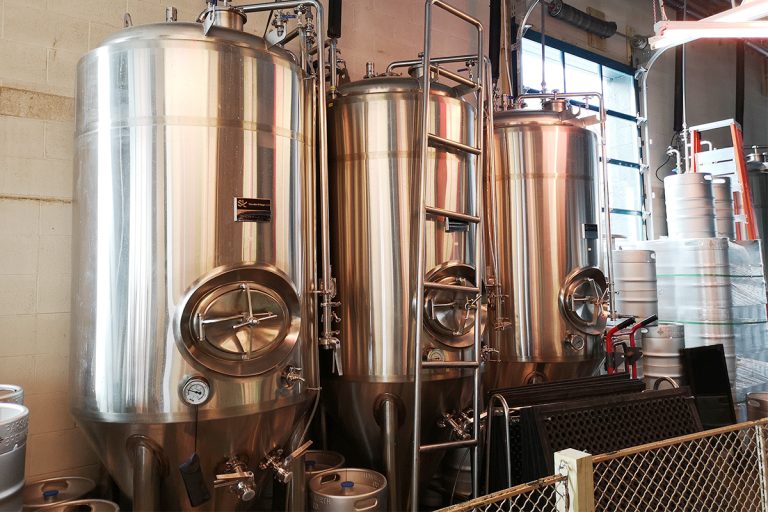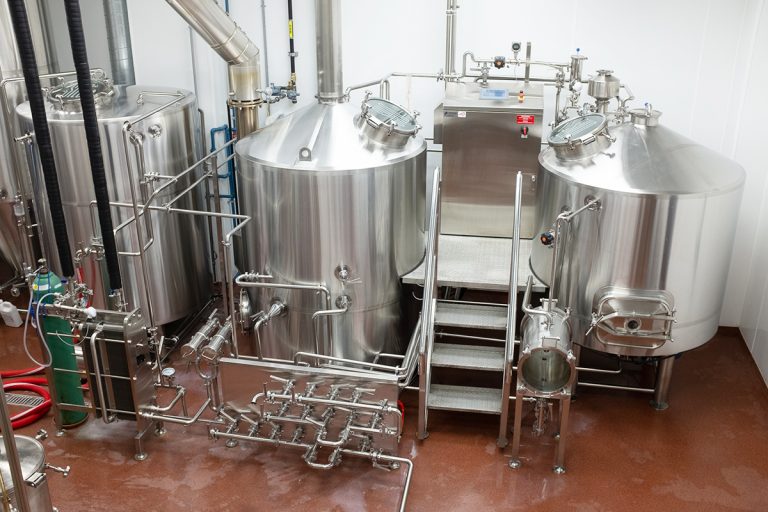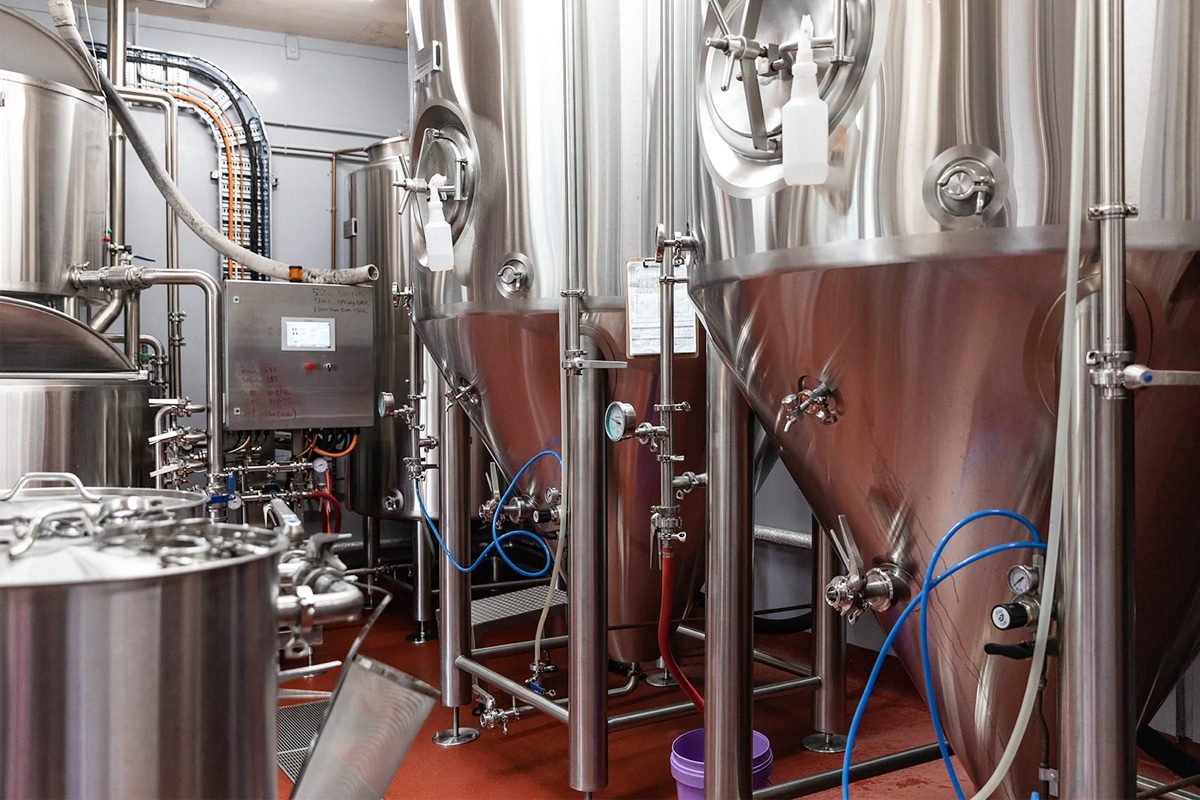
How to Clean Brewery Equipment: A Comprehensive Guide
Beer brewing is a perfect blend of science and art, with every ingredient, process, and equipment playing a vital role in brewing the perfect pint. While focusing on ingredients and brewing techniques, an often overlooked but most important aspect of the brewing process is cleanliness. Brewery equipment maintenance and sanitation are not just chores, they are fundamental pillars of creating great beer.
In this comprehensive guide, we delve into the intricacies of cleaning brewery equipment and understand that the entire process from grain to glass requires a spotless foundation. From the smallest fermentation vessel to the most complex heat exchanger, every piece of equipment plays a vital role in shaping the characteristics of the final product.
Comprehensive Guide
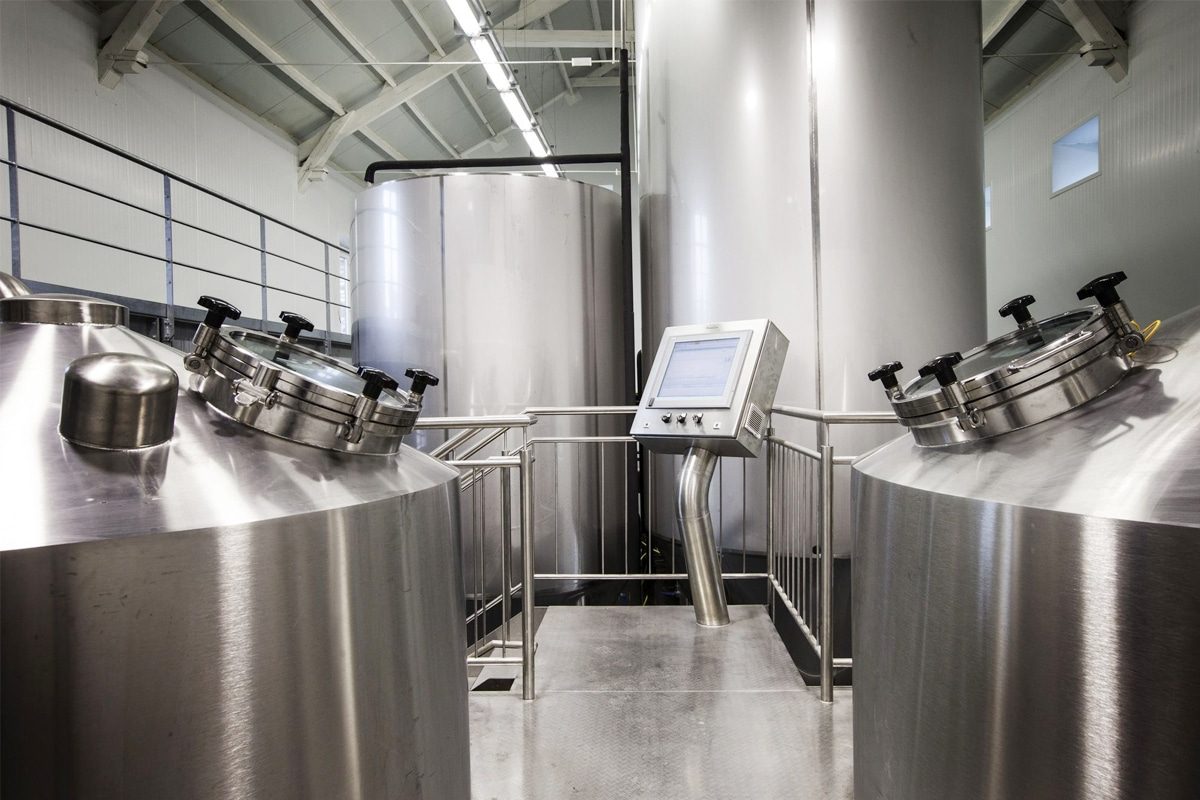
The Importance of Cleanliness in Brewing
Impact on Beer Quality
Cleanliness is not only a matter of hygiene but also the cornerstone of beer quality. It is integrated into the DNA of high-quality beer. Cleanliness helps ensure that the unique flavor of the ingredients comes through without unnecessary contamination. Residue from previous batches, microbial contamination, or inadequate cleaning can contaminate the flavor and aroma of your beer, causing off-flavors and possibly ruining your beer. With the absence of harmful microorganisms and residues, brewers’ craftsmanship is fully appreciated by consumers.
Prevent Contamination And Odor
Contaminants can wreak havoc on the brewing process, causing undesirable flavors and aromas. Maintaining cleanliness from brewhouse equipment to fermentation tanks and bright tanks is the first line of defense against contamination. Removing residue and preventing cross-contamination protects the integrity of the beer and retains its intended taste characteristics.
Comply With Health And Safety Regulations
In addition to its impact on beer quality, keeping your brewery clean also helps meet health and safety standards. Meeting these standards not only means complying with the law but also demonstrates a commitment to producing safe, high-quality beverages. Strict standards ensure that the brewing environment is not only conducive to quality but is also safe for consumers and the individuals making these wines. Therefore, regular cleaning is an aspect of responsible brewing that cannot be ignored.
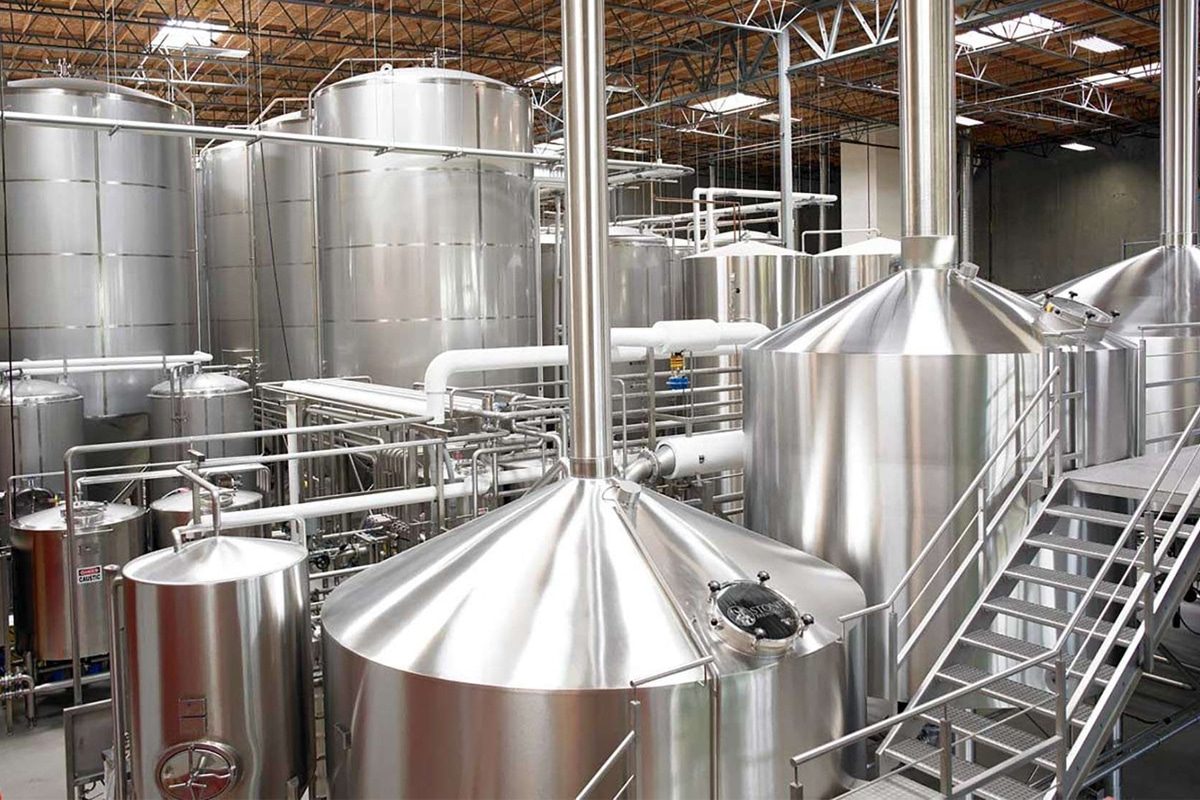
Basic Cleaning Principles
Cleaning Process Overview
Cleaning brewery equipment is not a one-time task but an ongoing process. It involves a systematic approach to cleaning, including disassembly, soaking, scrubbing, rinsing, and disinfection. Understanding the unique needs of each piece of equipment can help with a thorough cleaning process. From daily flushing to regular deep cleaning, every step in the cleaning process contributes to the overall hygiene of the brewery.
The Importance of Cleaning Schedule
When it comes to cleaning, consistency is key. A well-structured cleaning plan ensures that no corner of your brewery is neglected. From brewery vessels to service lines, having a plan in place can help maintain a clean and efficient brewing environment. Neglecting to clean regularly can cause a domino effect of problems that can affect the quality of your beer.
Precautions And Safety Measures
Brewery equipment cleaning often involves the use of strong chemicals and hot water. Brewers must be versed in proper safety measures, including the use of protective equipment and the proper handling of cleaning chemicals.
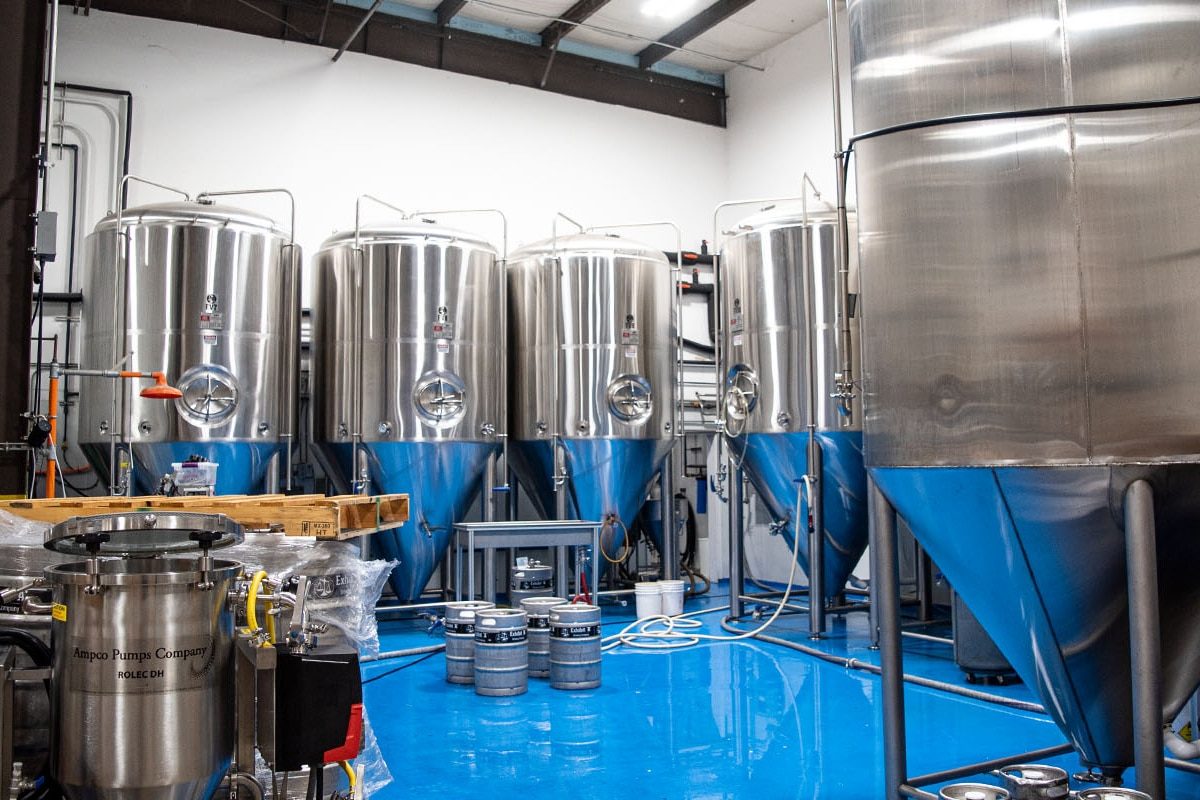
Brewery Equipment Cleaner
Commonly Used Cleaning Agents
Breweries use a variety of cleaners, each customized to address specific challenges in the brewing process. Understanding the properties and applications of these agents can help achieve effective cleaning. The following are some cleaning agents commonly used in brewery equipment cleaning:
- Alkaline Cleaners: Alkaline cleaners are ideal for removing organic deposits and are effective at removing proteins, fats, and carbohydrates. They are commonly used for cleaning kettles, fermenters, and storage tanks.
- Acidic Cleaners: Acidic cleaners are great for removing mineral deposits like beer stone. It is suitable for cleaning equipment such as heat exchangers, pipes, and barrels. Acidic cleaners are especially important in areas with hard water to prevent scale build-up.
- Disinfectant: After cleaning brewery equipment, sanitizing helps eliminate any remaining bacteria or yeast. Common disinfectants include iodophors, peracetic acid, and quaternary ammonium compounds. Make sure the sanitizer you choose is suitable for your brewery equipment and meets industry standards.
Choose The Right Cleaner
- Consider Equipment Materials: Different materials (stainless steel, copper, plastic) may require specific cleaners. Avoid using cleaning agents that may damage the integrity of the equipment.
- Customize Based on Residue Type: Match your cleaner to the type of residue you want to treat. Knowing the composition of your residue can help you choose the most effective cleaner.
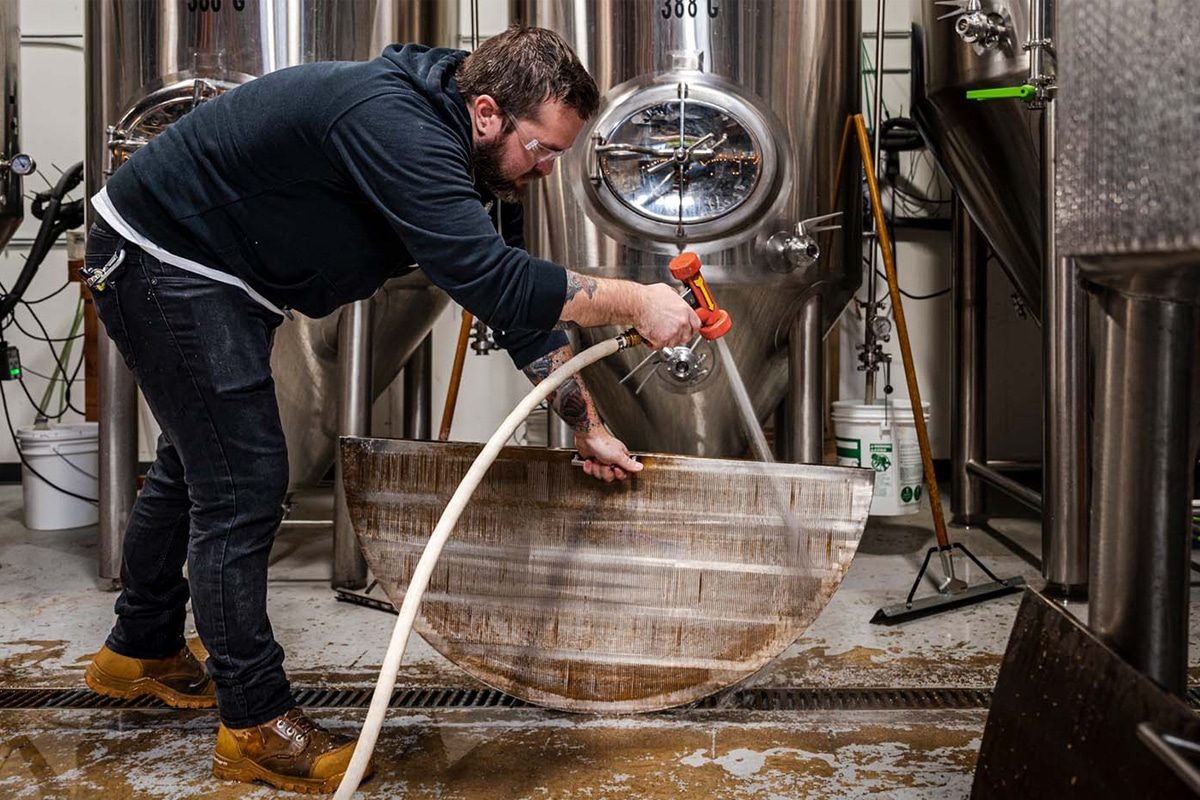
Manual Cleaning of Brewery Equipment
Keeping brewery equipment clean and sanitary is critical to producing high-quality, safe beer. Proper cleaning not only ensures that residue and contaminants are removed but also helps extend the life of your equipment and the overall success of your brewing endeavor.
- Gather Cleaning Supplies: Before you begin the cleaning process, make sure you have all the necessary cleaning supplies on hand. This usually includes cleaners, brushes, hoses, and disinfectants. It is recommended to use a cleaner specifically designed for brewery equipment to avoid any unwanted flavors or contaminants in your beer.
- Disassembly And Inspection: Begin by disassembling equipment such as fermenters, brewhouse equipment, hoses, and fittings. Inspect each component for any visible residue, buildup, or damage. This step helps identify areas that may need extra attention during the cleaning process.
- Pre-Rinse: Rinse the device with hot water to remove any loose debris and residue. An initial rinse helps prepare the surface for more effective cleaning and prevents the build-up of organic matter.
- Use A Brewery-Approved Cleaner: Apply a brewery-approved cleaner to all surfaces of the equipment. Be sure to follow the manufacturer’s instructions for dilution ratios and contact times. Use a soft brush to scrub all accessible surfaces to remove stubborn deposits. Pay special attention to areas with tight spaces or complex designs where residue may be hidden.
- Soak And Cycle: For certain parts that are difficult to scrub manually, consider soaking them in a cleaning solution. Additionally, using a pump to circulate the cleaning solution through hoses and other pipes can help ensure that all interior surfaces are thoroughly cleaned.
- Rinse Thoroughly: After the cleaner has had sufficient contact time, rinse all parts thoroughly with hot water. Make sure not to leave any cleaning residue as these can negatively affect the flavor and quality of your beer.
- Disinfection: Disinfection is a critical step in the cleaning process. Use a brewery-approved sanitizer to kill any residual bacteria or yeast that may be present. Follow the manufacturer’s dilution and contact time instructions for optimal disinfection.
- Air Dry: Allow all cleaned and disinfected equipment to air dry completely before reassembling and storing. Proper drying prevents the growth of mold and bacteria and ensures your equipment is ready for your next brew.
- Regular Maintenance: Create a routine cleaning schedule for your brewery equipment. Regular maintenance not only prevents residue buildup but also extends the life of your equipment, saving you time and money in the long run.
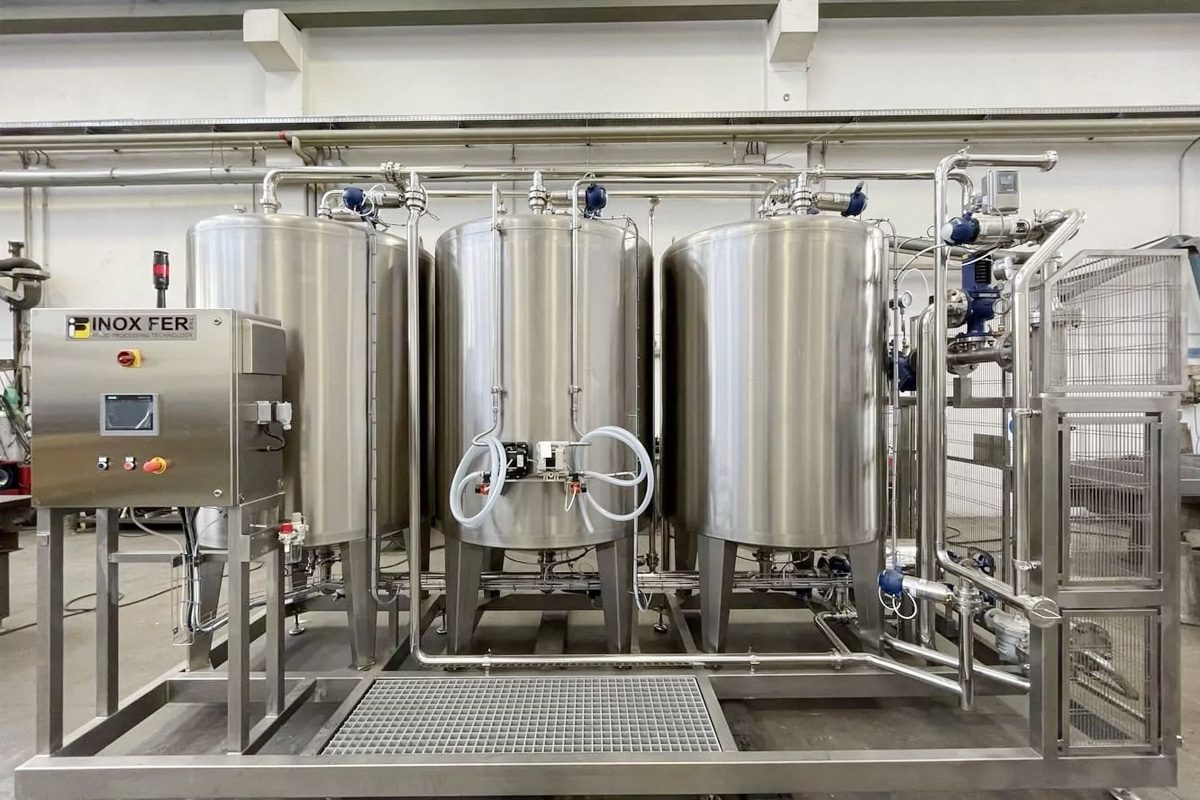
CIP System Cleans Brewery Equipment
Clean-in-place (CIP) systems are a revolutionary cleaning method designed specifically for the beer industry. Unlike traditional cleaning methods that involve manual scrubbing or disassembly of equipment, CIP systems automatically clean brewing vessels and pipes while they remain in place and require no human intervention or disassembly.
Components of A CIP System
- Cleaners: CIP systems use specialized cleaners to deal with the unique residue found in brewing equipment. These cleaners include alkaline cleaners, acidic cleaners, and disinfectants, which need to be selected based on the nature of the residue to be treated.
- Pumps And Spray Units: An integral part of a CIP system is the pump used to circulate the cleaning solution through the brewery equipment. Spray units from rotating nozzles to static spray balls ensure even distribution of cleaning agents on all surfaces.
- Control System: The core of the CIP system lies in its control system, which regulates key parameters such as temperature, flow rate, and cleaning fluid concentration. This automation ensures a consistent and efficient cleaning process.
CIP Cleaning Process
- Pre-Rinse: Before the main cleaning phase, a pre-rinse will be initiated to remove any loose debris and prepare the equipment for a thorough cleaning.
- Cleaning Phase: The CIP system circulates the selected cleaning solution at the appropriate temperature and flow rate. A spray device (rotating nozzle or static spray ball) then sprays the cleaning solution onto every surface, nook, and cranny of the equipment, leaving no room for the residue to hide. In addition, the cleaning solution needs to be given enough time to break down and dissolve the residue, and the control system can manage the duration precisely.
- Intermediate Rinse: After the cleaning phase, an intermediate rinse is required to rinse away the used cleaning solution and any remaining residue.
- Disinfection: Recycle food-grade disinfectants to eliminate any remaining microorganisms. Similar to the cleaning phase, disinfectant is evenly distributed through the spray device, ensuring complete coverage and sufficient contact time for effective disinfection.
- Final Rinse: The CIP cleaning process ends with a final rinse to remove any remaining chemical residue and prepare the equipment for the next brew cycle.
Advantages of CIP Systems
- Efficiency: CIP systems reduce manual labor and save time by automating the cleaning process, allowing breweries to focus on other aspects of production.
- Consistency And Quality Assurance: The controlled and automated nature of the CIP system ensures that each cleaning cycle adheres to predefined parameters, maintaining consistency in cleaning efficacy and quality control.
- Hygiene: By minimizing manual handling and exposure to cleaning agents, CIP systems reduce the risk of contamination and ensure a high level of cleanliness and hygiene.
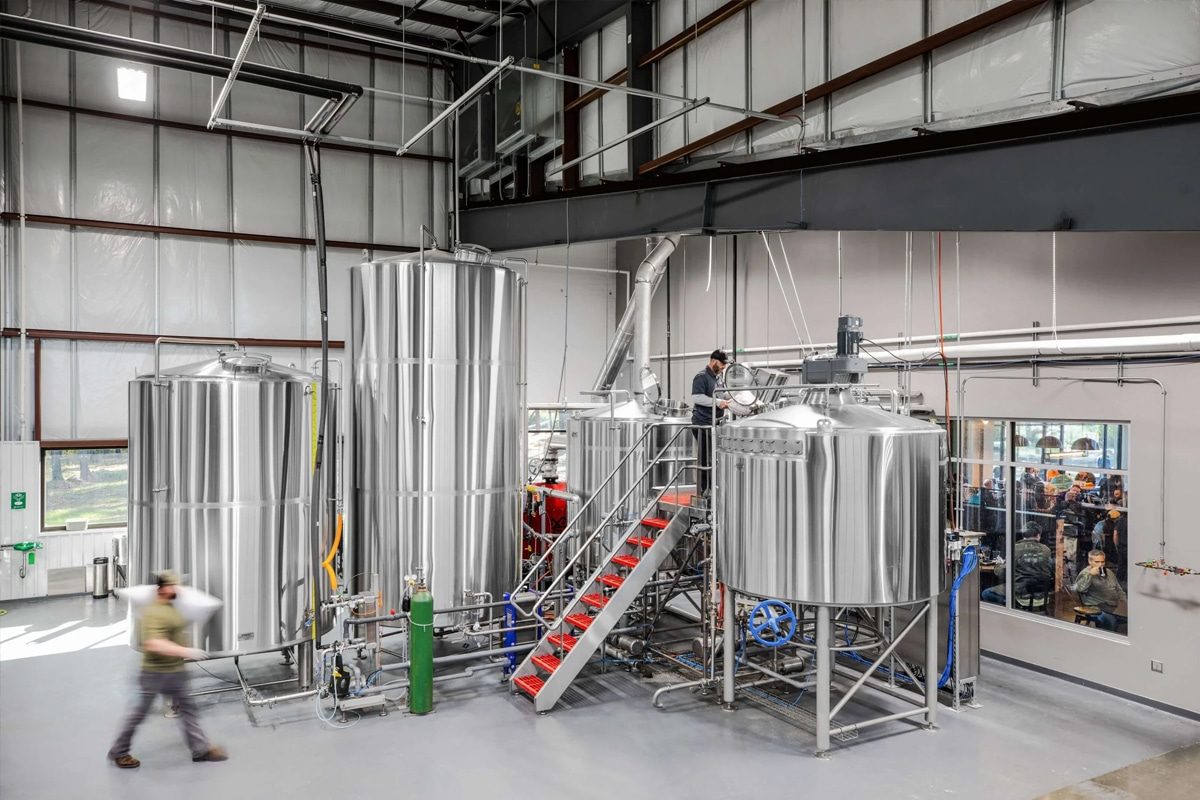
Summarize
In the intricate world of brewing, cleaning isn’t just a formality; It is the cornerstone of brewing excellence. Regular cleaning, meticulous attention to detail, and the use of appropriate cleaning agents help produce the highest quality beer. Whether through in-house cleaning procedures or utilizing professional services, maintaining a spotless brewery environment ensures that each batch of beer meets the standards that discerning consumers expect. Embrace the art and science of brewing and make cleanliness a non-negotiable aspect of your craft. Let your dedication to cleanliness be as unwavering as your commitment to brewing perfection. As you embark on this journey, armed with knowledge of cleaning principles, reagents, and techniques, may every sip of your carefully brewed beer be a testament to a craft that starts clean.
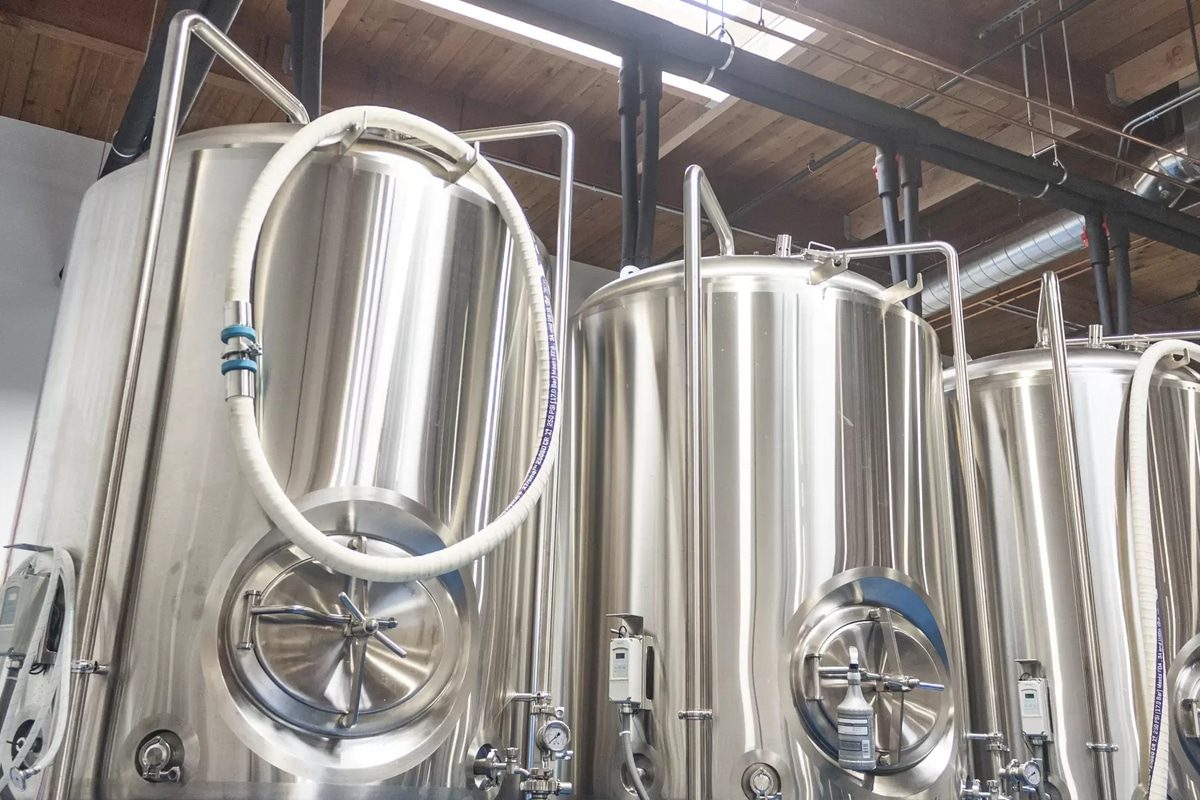
Complete Brewery Equipment Cleaning Solution
ZYB Craft offers complete brewery equipment cleaning solutions to meet the unique needs of your operation. Our team of experts has developed a comprehensive range of cleaning solutions that are not only effective but efficient, allowing you to focus on what you do best, brewing exceptional beer. Consult ZYB Craft today to make an informed choice for the cleanliness of your brewery. Our team of professionals is ready to answer any questions you may have and guide you in finding the perfect cleaning solution for your brewery.

